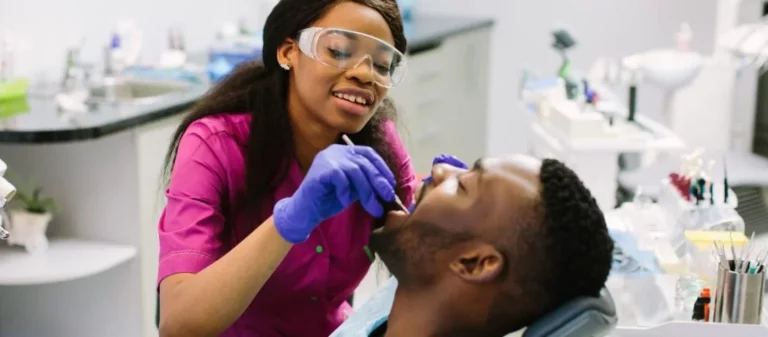What Are Root Canals?
Each of your teeth has a small pulp on the inside, which houses the blood supply and nerves. When this pulp becomes infected by decay, or exposed due to a crack or fracture in the tooth, it may need to be removed. Root canals are incredibly common procedures, and help to retain the overall structure of a compromised tooth. This prevents the need for an extraction, while simultaneously eliminating any pain or sensitivity specific to that tooth.
Contact our Virginia dentists to schedule an appointment. We have dental offices in four locations for your convenience: Norfolk, Virginia Beach, Hampton Kecoughtan, and Hampton Coliseum.
Why Are Root Canals Needed?
One of the most common reasons for needing a root canal is due to decay. Cavities that were left untreated can get to the point where the decay reaches the inner pulp, leading to pain and sensitivity. Another reason for needing a root canal is because you’ve had a tooth crack, break, or fracture in a way that exposes the inner pulp. We will perform an examination to determine if and when a root canal is needed.
Who Is a Good Candidate for Root Canals?
Most patients who need a root canal can safely have the procedure done. Root canals are necessary for maintaining the actual structure of the tooth, eliminating the need for an extraction. Patients of all ages can benefit from root canals if, and when, they’re needed. The procedure completed in our office is quick and comfortable.
Common Signs You Might Need a Root Canal
Tooth pain that worsens when chewing, prolonged sensitivity to heat or cold, swelling around the gums, or discoloration of the tooth can all be signs of a diseased tooth. These symptoms often indicate problems inside the tooth, such as an infected pulp or deep cavity. If left untreated, these conditions can lead to more serious issues involving the tissues surrounding the tooth root.
If you’re experiencing these symptoms, it’s important to explore your treatment options as soon as possible.
Understanding the Root Canal Process
A root canal involves more than just removing infected material. It’s a comprehensive dental procedure designed to clean, disinfect, and seal the inside of the tooth. Using small files, your dentist or endodontist carefully shapes each canal to eliminate bacteria and prepare it for filling. The pulp, which contains nerve tissue and blood vessels, is fully removed to stop the spread of infection.
A material called gutta-percha is then used to fill the space, preventing further infection and reinforcing the treated tooth. Afterward, a crown may be placed to support the tooth’s structure and allow for normal function.
What Happens During the Procedure for Root Canals?
We begin by administering a local anesthetic to the area needing the root canal. We isolate the tooth with a rubber dental dam. The decay is removed from the tooth, and begin work on removing the actual pulp. The canals of the tooth’s roots are carefully cleaned and filled using a medicated material. The hole that was created is then filled with composite resin, which is hardened into place. The dental dam is removed, and you’ll be ready to go home with a tooth that’s free of pain and sensitivity.
What Happens After Root Canal Therapy?
After the root canal procedure is complete, the treated tooth may be fitted with a permanent crown to restore full function and protect it from damage. Most root canals allow patients to resume normal chewing once healing begins, though a temporary filling may be used until a follow-up visit. Regular dental checkups are key to ensuring long-term success and monitoring the health of endodontically treated teeth.
Why It’s Important Not to Delay Treatment
When an infected tooth is left untreated, the infection can spread to the surrounding connective tissue and even to adjacent teeth. This may lead to severe pain, swelling, or the need to have the tooth extracted. Early root canal treatment helps preserve your natural tooth and prevent reinfection. The sooner infected pulp and bacteria are removed, the better the endodontic treatment outcomes.
Our Commitment to Comfort Care
At The Foleck Center, our experienced team uses local anesthesia to make root canal therapy as comfortable as possible. Whether it’s caused by deep decay, a deep cavity, or damaged pulp, our clinical endodontics approach focuses on saving your tooth and eliminating infection. Our dentists use small instruments and x-rays to accurately clean inside the tooth and fill the canals with a rubber like material called gutta percha.





